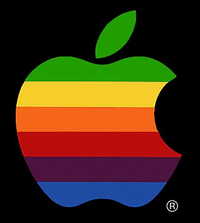Bullish Cross: Apple is an undervalued stock prize


Apple has more net cash than each of the nine big tech stocks, zero debt, trades at the lowest price-to-cash ratio of only 3.79, grew earnings faster than every other tech company except for RIMM, and is generating almost $3.00 per share in free cash flow every quarter. Just to get an idea of how undervalued Apple is compared to others in the tech sector, one need only to consider where these other tech companies would stand if they were valued in the same way as Apple i.e. if those same companies were met with the same general bearishness that Apple is faced with.
Zaky compares Apple with Google, Research in Motion and Amazon and then discusses why Wall Street is so bearish on Apple: Major concerns regarding the health of the consumer and false perceptions regarding Apple's dependence on iPod sales. He finishes up with a week-by-week analysis of the recent sell-off of Apple stock.
The main reason that the market is particularly bearish on Apple has to do with overblown fears regarding a consumer-lead slowdown affecting Apple's business. The idea here is that since consumer spending and sentiment are hitting multi-year lows, Apple's business cannot function at any reasonable level. Many in the market have argued that since Apple is "supposedly" entirely consumer discretionary, that the consumer is going to cut back its spending on products such iPhones and iPods. Many have asked: how can anyone possibly afford to buy an iPod when they can barely afford consumer staples?
This concern is obviously overblown beyond epic proportions. First, while economists have been drumming the recession 2008 beat, Apple's Mac sales, iPhone sales, Mac revenue, iPod revenue, total revenue, EPS, net income, free cash flow, cash growth and iTunes revenue have all been accelerating. Not just growing, but accelerating. There is nothing in Apple's 2008 quarterly earnings reports that have indicated that the consumer has slowed down. At best, the 2008 "recession" has had only a negligible if any impact on Apple's business. ...
I would add a couple of other points to consider when considering Apple's : the changing perception of Apple in the market and the Macintosh.
First, as I pointed out in a recent post on iPhone demographics, when money is tight and purchasing decisions count, consumers don’t want to experiment. They become conservative and in the current market, Apple is the conservative choice for music players and consumer smart phones.
It's a total turnaround. In the early days of client PC computing, it was said that "nobody got fired for recommending IBM." The corollary was that you could get fired for recommending Macintosh or Apple II.
But today, Apple is now a conservative choice, perhaps not for many businesses yet, but in the consumer segment. And it has kept its position in a number of important professional markets.
Second, it appears to this longtime Apple observer -- and one who doesn't own any Apple stock -- that both Wall Street and Main Street have a fundamental misunderstanding of the Mac market: they think that all computers are interchangeable and that Mac users will move over to Windows or Linux machines if and when push comes shove in the budget.
This ignores the fact that the Macintosh is its own hardware and software platform, one that users really like and want to continue using. While some users have left the platform at times, mostly because their companies refused to support the Mac, this prejudice has evolved over the past three or so years.
To Wall Street analysts (and most Windows users), Mac users are more than a little insane and that all computers are alike. The Mac choice is counter to the economic interest where cheaper is always better. This sentiment has been around since the introduction of the PC and the Mac, except instead of Windows, PC users would say that DOS worked fine and was the logical choice for computing.
Today, the Mac is a growing platform, even though customers must pay a "tax" for the Apple hardware and software technology and its level of integration. Half of the Mac customers in Apple Stores are switchers from Windows, even in the latest quarter. No doubt, they would like to pay less for a Mac but they appreciate the value of the products.
Meanwhile, according to Net Applications' OS figures, about half of the Mac user base is still on PowerPC. These Mac customers will likely move their older seats to Macintel over the next year or two.
Like Zaky, I don't understand the bearish view of Apple.